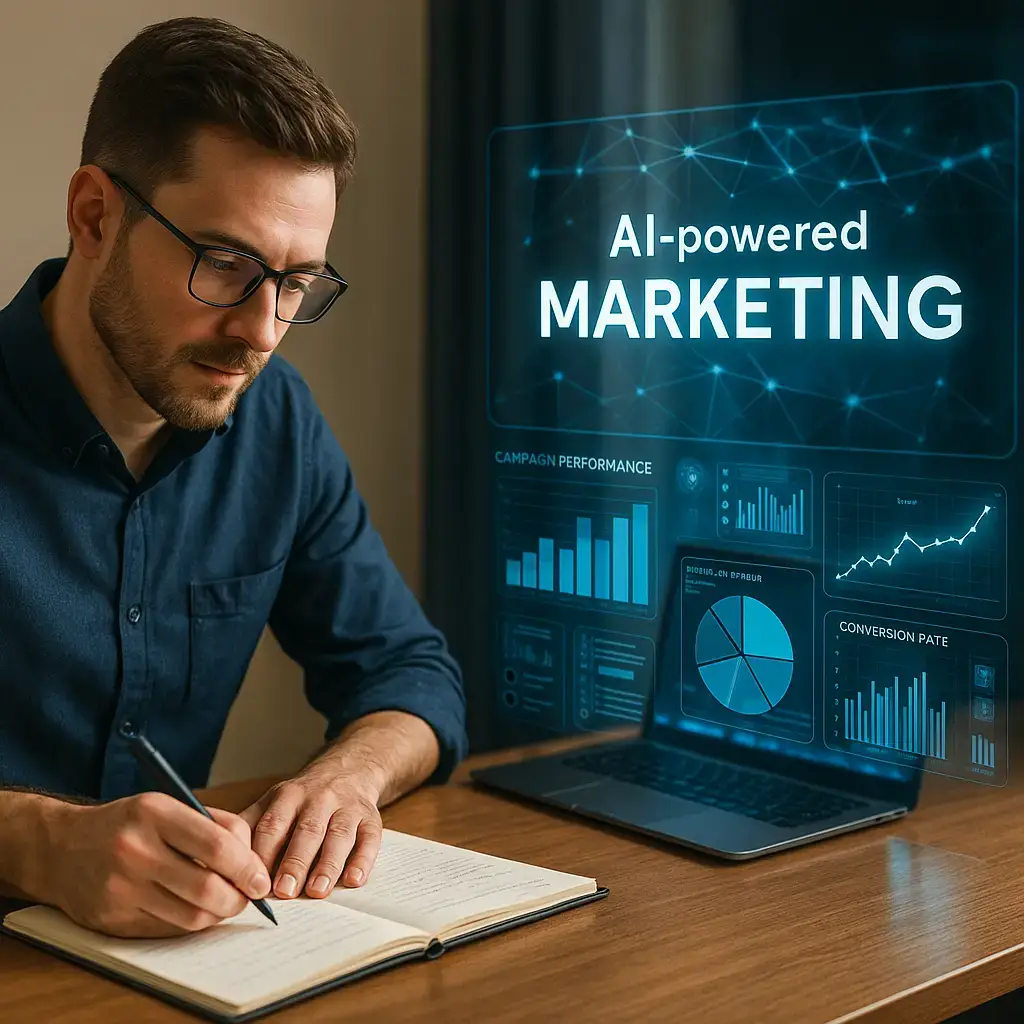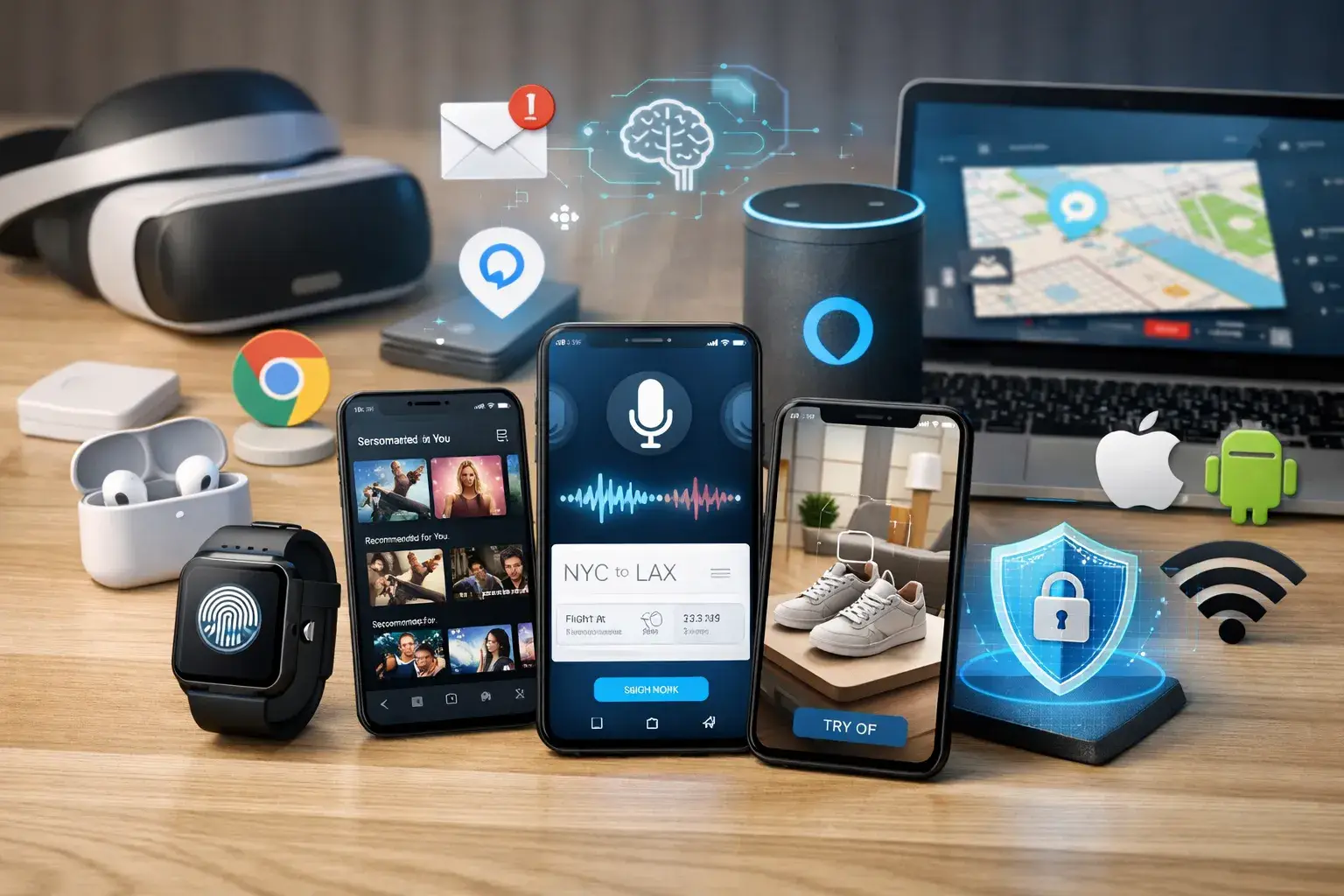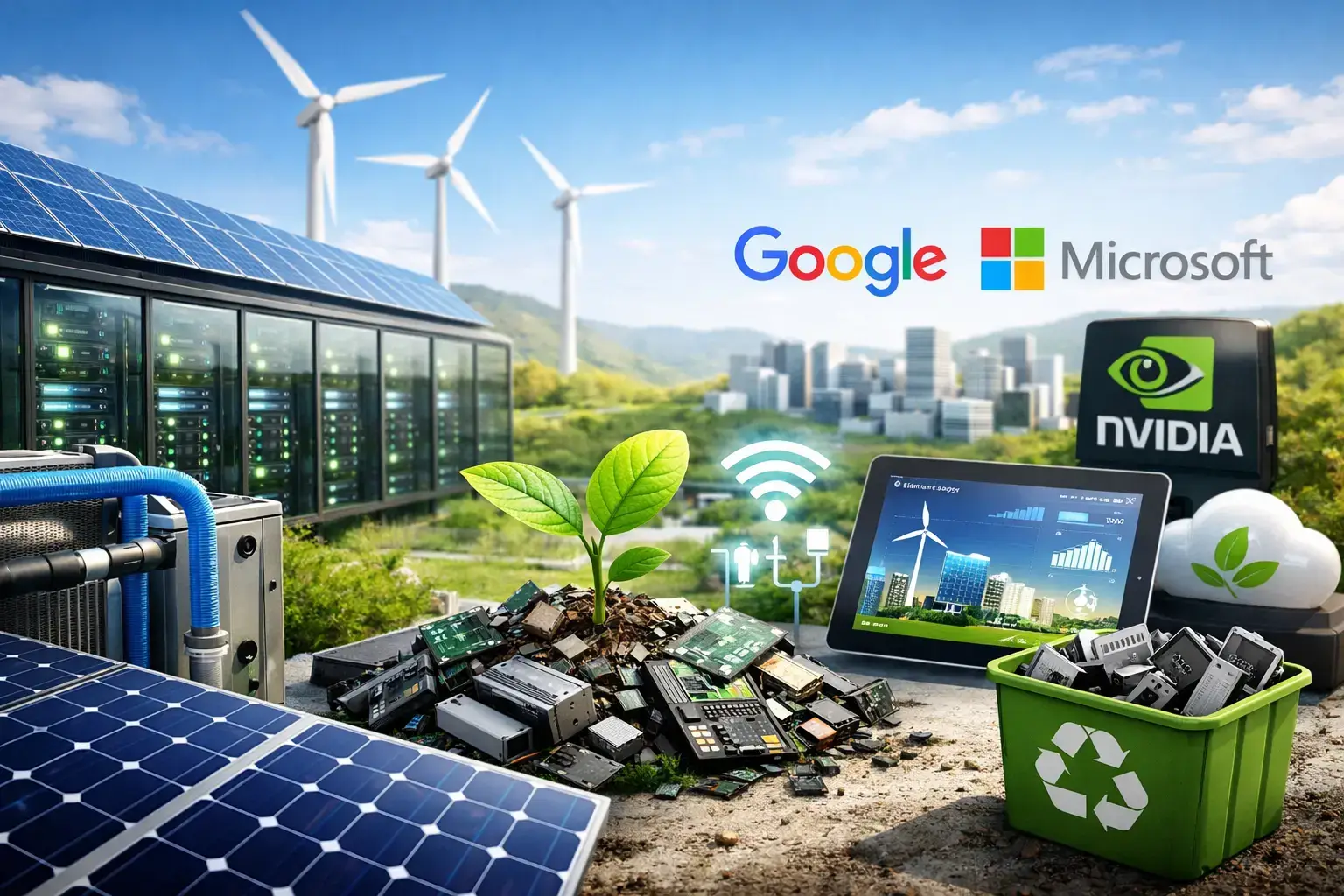Artificial intelligence is no longer a futuristic concept reserved for labs and sci-fi. It is reshaping digital marketing today—accelerating decision-making, personalizing customer journeys, optimizing ad spend, and automating repetitive tasks. Agencies and brands that understand and apply AI strategically are pulling ahead, while others risk falling behind.
1. Smarter Audience Targeting
AI can analyze vast amounts of behavioral data to identify high-intent audiences, predict who is most likely to convert, and segment users based on interests, purchase probability, and lifetime value. This precision replaces broad demographic guesses with granular predictive targeting.
2. Hyper-Personalized Content at Scale
AI-driven content engines generate tailored messaging for individuals—dynamic emails, personalized landing pages, product recommendations, and ad creatives that adapt in real time to user behavior. Personalization that once required manual effort can now be delivered automatically for millions of users.
3. Automated Ad Optimization
Systems powered by machine learning continuously test, tweak, and scale ad creatives, bids, and placements. Instead of manual A/B testing cycles, AI evaluates performance data in real time and reallocates budget to the best-performing combinations across platforms like search, social, and display.
4. Predictive Analytics and Forecasting
AI models forecast trends, customer churn, and campaign outcomes before they happen. Marketers can proactively adjust strategies, allocate resources more efficiently, and avoid spending on campaigns unlikely to deliver ROI.
5. AI-Powered Creative Assistance
From copywriting to design suggestions, generative AI tools help marketers produce content faster. They can draft ad copy, suggest headlines, create visuals, and even produce short-form video concepts—freeing human talent to focus on strategy and refinement.
6. Voice and Visual Search Optimization
As voice queries and image-based discovery grow, AI helps optimize content for natural language search and visual relevance. Brands can use AI to interpret conversational intent, tag assets automatically, and surface products when users search with voice or pictures.
7. Chatbots and Conversational AI
Customer service, lead qualification, and even sales can be handled by intelligent conversational agents available 24/7. These AI assistants learn from interactions and escalate to humans only when needed, maintaining consistency while reducing response latency.
8. Enhanced Customer Journey Mapping
AI stitches together fragmented touchpoints across channels to build unified customer profiles. Marketers gain insight into paths that lead to conversion, friction points, and optimal moments for intervention.
9. Efficiency Through Automation
Routine tasks—report generation, scheduling, performance alerts, and campaign setup—are now automated. This reduces human error, accelerates execution, and frees teams to work on higher-level creative or strategic challenges.
10. Ethical Considerations and Guardrails
With power comes responsibility. AI use in marketing raises concerns about privacy, manipulation, bias in targeting, and transparency. Leading marketers establish ethical guidelines, use explainable AI tools, and ensure consent and data governance are built into workflows.
Conclusion
The future of digital marketing is intelligent, adaptive, and data-driven. AI amplifies human creativity and strategic thinking—it does not replace it. Agencies that combine deep domain expertise with AI-powered systems will deliver more relevance, efficiency, and measurable outcomes for clients. The edge will go to those who master both the art and the algorithm.




